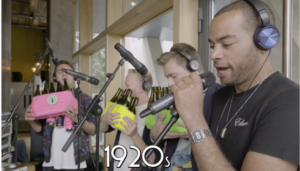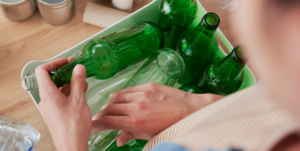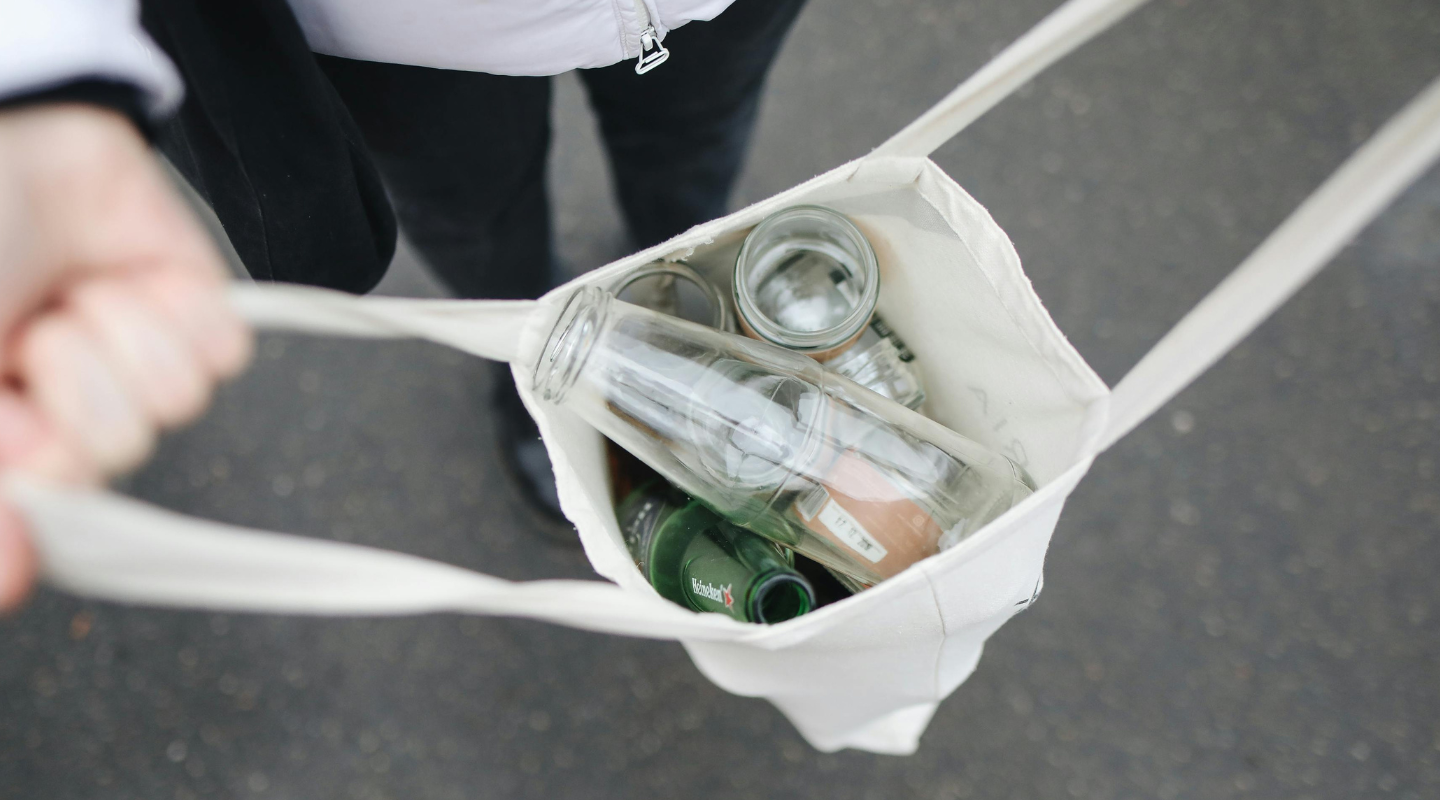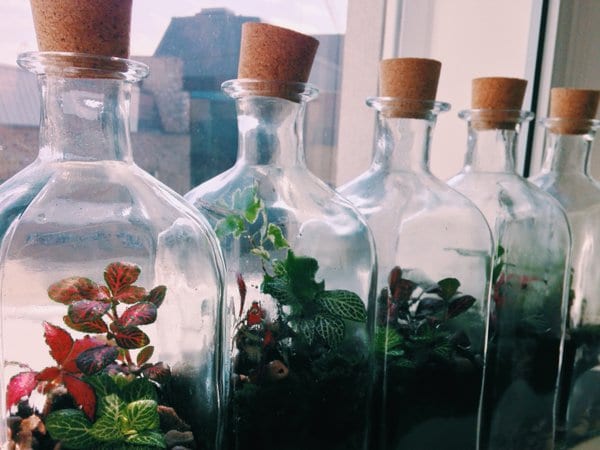Moving away from your parents for the first time to an alien city, shoved in a flat full of strangers who you’re meant to socialise with, and coping with a mountain of work from your course.
It’s a lot to handle, and one thing you might not think about at this testing time is recycling your glass – but you should.
Glass is better for the environment than other packaging materials because even if it does end up in the ocean, it turns back into harmless sand. What’s even better is that it can be endlessly recycled which in turn means that we can save on Co2 by using more recycled glass and less raw materials during manufacturing.
Our research shows that only 50% of 18-29 year-olds in the UK know that glass can be infinitely recycled, which means that there’s a massive group of people who don’t know just how good glass is. So in order to change that, we recently launched a competition for students at the University of York, Cardiff University and the University of Oxford to get them recycling more. The lucky winner from one of the universities can win a £225 experience day voucher to spend on whatever they see fit, and you can find all of the details of the competition here.
Whilst a competition is all well and good, we’ve also decided to put together a few handy tips on the best way to recycle your glass and some useful glass facts, just to help you along your way.
Find out your city’s recycling policy
When moving to a new city it’s likely that there will be a different recycling policy to your hometown, which can cause you some problems.
You might not know whether your accommodation recycles glass or there might be a bin in your back garden that’s a colour you didn’t think belonged on a bin (we’re looking at you purple bins in Liverpool).
But fear not if you’re feeling a little confused at first, it’s not that hard to find out your city’s recycling policy on glass.
If you’re in halls your university should have all the information you need, either online or on campus, and if you’re in private accommodation, simply ask your landlord or find your local council’s recycling guide online.
Most local authorities collect glass bottles and jars via kerbside collections but always double check.
If you can’t recycle glass on campus, find out where you can
While most universities are different from one another when it comes to recycling glass, most will have facilities on campus. However, if yours doesn’t then don’t despair, as you can easily find your nearest bottle bank to make sure you still recycle your glass.
The good people at RecycleNow have a handy tool that allows you find the nearest place you can recycle your waste, including glass.
Make sure you know what can and can’t be recycled
Unfortunately not all glass can be recycled, so make sure you know what can and can’t go in your recycling.
Jars and bottles are fine, so if you’ve finished your massive jar of coffee to get you through that latest assignment or you’ve got plenty of beer bottles hanging around after a house party, you’re in the clear to put them in the recycling.
But if you smash a Pyrex dish or a lightbulb, they’re both made from glass that can withstand heat, and can cause problems if they’re re-melted alongside other glass, so these types of glass should not be put in your recycling bin.
Drinking glasses and vases are also made from different glass compositions and can cause production problems so be sure that they don’t end up in the recycling.
For a full list of what types of glass you shouldn’t be recycling, take a look at our recent blog post and make sure your housemates know as well.
Can’t recycle? Reuse
If the worst comes to the worst and you can’t recycle your glass containers, why not reuse them instead?
Have you been bought a gorgeous bouquet of flowers? Put them in an old spirit bottle for a quirky vase.
Got some food leftover? Stick it in an old clean glass jar to go in the fridge for tomorrow’s dinner.
You can even use your glass containers to carry your goods when visiting a plastic free shop to really help the environment.
To find your nearest zero waste or plastic free shop, take a look at this helpful article from the Zero Waster.
Glass makes things taste better
You might have noticed that drinks taste better out of a glass bottle compared to a can and you’re not the only one. World renowned taste experts recommend that food and drink should be stored in glass in order to keep the contents fresh and the flavours intact.
It’s all to do with preserving the natural aromas, tastes and textures of the food and drink which is stored in glass containers as glass doesn’t use any polymers, like aluminium cans, meaning the taste isn’t affected.
So don’t just take our word for it, trust the experts.
Sign up to the Friends of Glass mailing list here and you could win a £10 Love2Shop Voucher.







